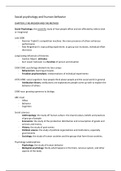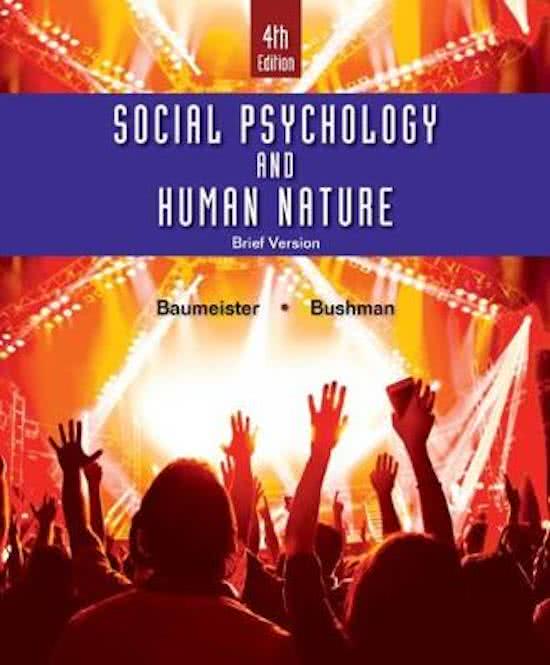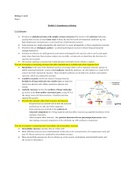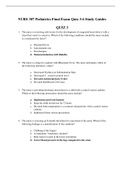Samenvatting
Summary Social Psychology and Consumer Behavior 0HV30
- Instelling
- Technische Universiteit Eindhoven (TUE)
This is a summary of the whole course Social Psychology and Consumer Behavior, 0HV30. It contains lecture notes and a complete summary of the book: Social Psychology and Human Nature by Baumeister and Bushman. The summary includes chapter 1-14. NB: After learning this summary, I passed the course ...
[Meer zien]







